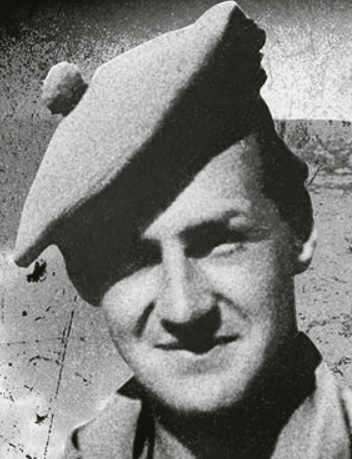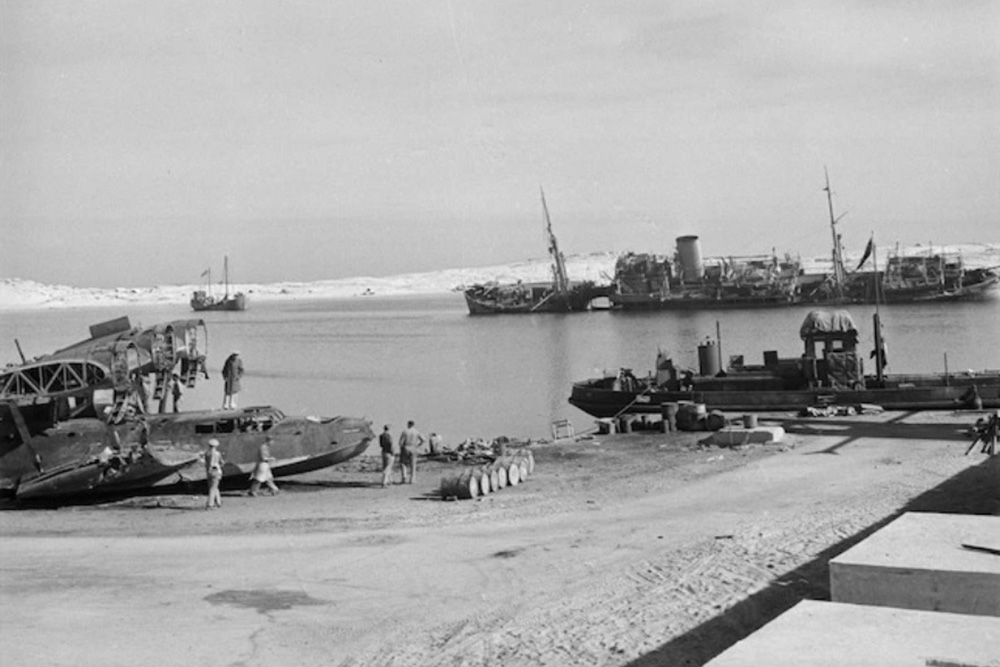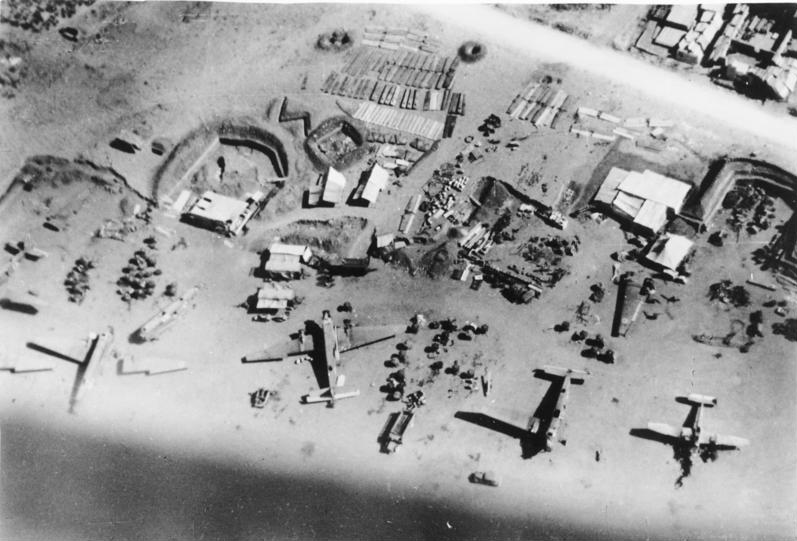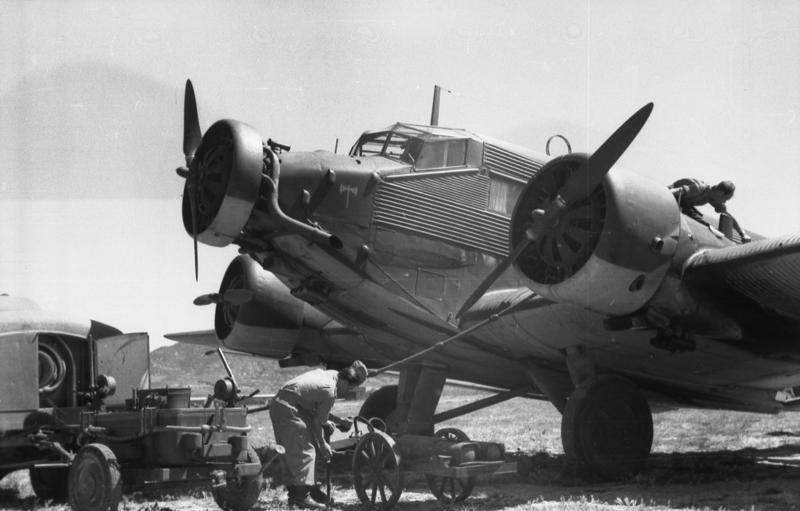Sutherland, David George Carr
- Date of birth:
- October 28th, 1920 (Peebles, Scotland )
- Date of death:
- March 14th, 2006 (Kensington and Chelsea/London, United Kingdom)
- Service number:
- 108190
- Nationality:
- British
Biography
David George Carr Sutherland was born near Peebles in Scotland. He was educated at Eton and RMC Sandhurst, from where he was commissioned into his father’s regiment, the Black Watch, in October 1939. He served with the 6th Battalion in the British Expeditionary Force in France and Belgium and was evacuated from the beach at La Panne, east of Dunkirk in June 1940. He was an early volunteer for the commandos, soon after their formation, and went to the Middle East with a troop of 8 Commando. He served for a time in besieged Tobruk and with David Stirling’s 1st SAS Regiment in the Western Desert.
He took over command of the squadron-sized “S” Detachment of the SBS when the unit was reorganised under Earl Jellicoe on April 1, 1943, and moved to a new base at Athlit Bay on the coast of Palestine. He took his detachment to Crete intending to destroy enemy aircraft capable of reaching the southern shore of Sicily, where the Allied invasion fleet was due in July, but managed to burn only a few, as the Luftwaffe had discontinued night use of the airstrips.
Lieutenant David Sutherland and Royal Marine John Duggan were the only two to return from Operation “Anglo”, a raid on the Italian-occupied island of Rhodes by the Special Boat Service in September 1942. The SBS team was pursued relentlessly; it had attacked two airfields and destroyed aircraft positioned to support Rommel’s threatened advance on Cairo and to bomb supply convoys to beleaguered Malta.
The team of eight, plus two Greek guides and two interpreters, sailed from Beirut in the Greek submarine Papanikolis on August 31 to a beach near Cape Feralco, on the east coast of Rhodes, from where the two target airfields of Calatos and Maritsa lay eight and fifteen miles (24km) distant. The party landed without difficulty using a folding boat and three inflatable floats, which they concealed in caves after obliterating their foot prints in the sand. Beyond an assessment that the Italian garrison was about 30,000 strong, there was no intelligence on the local situation. The mission had to be accomplished by the night of September 17/18, when a submarine would call to pick up the team — or the survivors. They had no radio link to their base or to the Navy.
After resting for the first day, the group split into two parties — one under Captain James Allot to make the 30-mile return march to Maritsa and the second under Sutherland to attack the nearer airfield at Calatos. Sutherland’s party reached a point overlooking the airfield by the night of September 11/12 and spent the next day noting how the aircraft were dispersed. He decided on a simultaneous two-pronged night attack: one by a Greek officer with two Royal Marines to place explosive charges on aircraft on one side of the airfield, while he and Marine Duggan dealt with those on the opposite side.
Despite torrential rain during which Sutherland and Duggan were detected by a sentry, at least 13 aircraft were destroyed together with several fuel storage tanks. All five men got away from Calatos airfield but only Sutherland and Duggan reached the planned rendezvous for return to the beach. Shots heard to the north before dawn suggested the other party had met the enemy, as indeed they had. Next day the surviving pair lay up in the hills to confirm their assessment of aircraft destroyed, then made for the rendezvous (RV) overlooking the beach where they expected to meet Allot’s party on return from Maritsa.
Neither Allott’s group nor the missing three from Sutherland’s appeared at the beach RV, but an Italian patrol craft arrived with a landing party which found the folding boat and inflatables. After narrowly avoiding discovery by an Italian foot patrol on September 17, the pair left a written message at the RV explaining the lost boats and climbed down to the beach to swim out to the expected submarine. Two hours before midnight a reply to their identification torch signal was seen — it was flashed through the submerged submarine’s periscope — and, after replying, “Swimming, come in,” in Morse code, they entered the water. Although calm, the sea was cold and having eaten only a tin of sardines each over the previous five days it was little short of a miracle that, after an hour and a half in the water, they sighted HM Submarine Traveller and were helped aboard over the foreplanes. Minutes later Traveller had to crash-dive to avoid an Italian naval patrol boat.
Sutherland was awarded the Military Cross for his leadership and initiative and Marine Duggan the Military Medal. All other members of the SBS team were taken prisoner. The two Greek guides, who had earlier escaped from Rhodes and volunteered for the operation, were tried for treason and the older one, aged 24, executed. The younger man, aged 19, was imprisoned but died soon after the war from tuberculosis.
He was awarded a bar to his MC in September 1943 for his work on Crete.
Better results were achieved in a series of raids on enemy installations on Aegean islands north of Rhodes in early 1944. Secure operating bases on the Turkish coast were negotiated by quiet diplomacy, but when one of the SBS Greek-manned support craft collided with the harbour wall at Bodrum, Sutherland and the crew were arrested and briefly locked up in the castle until explanations could be made. He parachuted into Albania in October 1944 to join men of his “S” Detachment operating with local partisans against the withdrawing German Army, but found the partisans more preoccupied with local politics than attacking the joint enemy.
On return from Albania, at only 24, Sutherland became a lieutenant-colonel, on succeeding Jellicoe, in command of the SBS. He subsequently led them in a series of operations in support of Tito’s partisans in Dalmatia and Istria but, as in Albania, found that the indigenous political struggle had become more important than harassing the withdrawing enemy.
Return to peacetime soldiering was difficult, as it was for many of his contemporaries who had survived the war. He spent a year with the British Military Mission in Greece, advising the government forces in their struggle in the bitter conflict with communist guerrillas, and was later an instructor at RMA Sandhurst. Perceiving that it would be many years before he would regain his wartime rank of lieutenant-colonel to command the Black Watch, he left the Army in 1955 to begin a new career with the security service, MI5. At one stage he was the service’s senior representative in Pakistan, but took a nostalgic break to command 21 SAS of the Territorial Army 1956-58 and, from 1967 to 1972, to serve as deputy commander of the SAS Group. He was appointed CBE in 1974.
In 1946 he married Jean Henderson, his partner at the Sandhurst passing-out ball in 1939. She died of cancer in 1963 and he married the author and historian, Christine Hotchkiss, in 1964. He was survived by his second wife and a son and two daughters of his first marriage.
Promotions:
?: 2nd Lieutenant
22 April 1941: Lieutenant
?: Captain
1 July 1946: Major
22 October 1952: Major
10 May 1954: Major (seniority 28 October 1954)
10 May 1956: Acting Lieutenant Colonel
28 October 1958: Lieutenant Colonel (seniority 10 May 1956)
1 April 1967: Colonel
Do you have more information about this person? Inform us!
- Period:
- Second World War (1939-1945)
- Rank:
- Lieutenant
- Awarded on:
- November 26th, 1942
- Awarded for:
- Operation Anglo
The party were 13 days ashore during which time they succeeded in destroying about 13 aircraft as well as petrol and stores; although detected by the enemy and hunted for several days, Lt. Sutherland and Marine Duggan succeeded finally in swimming out to the craft which was to pick them up. The remainder of the party are unfortunately missing.
I consider that Lt. Sutherland displayed a high degree of courage, fortitude, and endurance, and it was mainly due to his energy and resourcefulness that considerable degree of success was obtained."
- Period:
- Second World War (1939-1945)
- Rank:
- Temporary Captain
- Awarded on:
- September 14th, 1943
- Awarded for:
- Operation Albumen
Not only were the two German prisoners brought back, but also 24 CRETAN refugees were evacuated. Throughout the whole time the party was on CRETE Capt SUTHERLAND displayed a cool courage and determined resourcefulness. It was entirely due to his very high qualities of leadership and control that the operation was a success, and due to his determination, courage, and clear thinking that the re-embarkation was made possible."
(It is requested that details of the above operations should not be published owing to their secrecy.)
Awarded as bar on the ribbon of the first medal.
- Period:
- Second World War (1939-1945)
- Rank:
- Temporary Major
- Awarded on:
- January 4th, 1945
- Period:
- Second World War (1939-1945)
- Rank:
- Temporary Lieutenant-Colonel
- Awarded on:
- August 15th, 1946
- Rank:
- Colonel
- Awarded on:
- June 15th, 1974
in 1968 he retired v I voluntarily from the Army and entered other Government service, In May 1966 he took over command of 21 SAS (Artists) Volunteers, commanding thes for over 4 years until October 1960. For the next 7 years he took a close personal, but unofficial, interest in the affairs of the SAS and in April 1967 e was appointed Deputy Commander (Colonel) of the SAS Group. He has held that appointment for over 6 years and still holds it.
When be nasused command of 21 SAS in 1856, it was at a critical period in the Engisent's history, when the reasons for which they were reformed after the war And largely disappeared, and the Regiment was very vunerable to the various reorganisations of the Territorial Aray that took place in the late 1950's. It was Colonel SUTHERLAND who pioneered the present vital role that the TAVR SAB Regiments have had for the past 16 years as the Corps Patrol Units in 1 (BR) Corps. Little Bay be said about this role beyond the fact that the TAVR SAS Regiments provide a high proportion of the tactical intelligence without which 1 (BR) Corps would be blind. In establishing this role, at that time, he showed remarkable vision and forethought. It proved so successful that a second TAVR SAS Hegluent was raised in 1987. At that time, too, Colonel SUTHERLAND had considerable difficulty in getting this much less glamorous, but nevertheless vital role in the nuclear age, accepted by his Regiment which had been brought up in the war time BAS traditions of offensive action behind the enemy lines. It could be said that his foresight was a major contribution to retaining the SAS in the TAVR Order of Battle at all, and also to the permanent establishment of the Regular SAS, 22 SAS Regiment, which was then on a Far Eastern Theatre establishment only and virtually unknown in the United Kingdom.
As Deputy Commander of the SAS Group, as a volunteer soldier and a very busy Ha indeed in his other senior Government appointment, he has made an enormous contribution to the special Air Servios, both egular and volunteer. He has guided and given unstinted loyalty and support to successive regular Group Commanders all of whom have been younger; in my case considerably younger, with nothing like Colonel SUTHERLAND's experience of SAS soldiering. He initiated and chairs the SAS Tactical Doctrins Committes which has made an enormous contribution to the development of SAS tactics and doctrines to meet the changing requirements of British defence policy, with the squadrons of the TAVE Regiments spread between Portsmouth and Dundee, he travels extensively visiting their drill nights and their many exercises, devoting a great deal of his own limited free time to their interests, and often giving up a substantial proportion of his own annual holidays to visit the TAVR Regiments abroad on their annual camps.
His motives for this very distinguished record of volunteer service have been entirely selfless and dictated solely by his firm belief in what the Special Air Service could contribute to this country's defence. I recommand most atrongly that this service be recognised."
- Period:
- Second World War (1939-1945)
- Period:
- Second World War (1939-1945)
- Period:
- Second World War (1939-1945)
- Period:
- Second World War (1939-1945)
- Period:
- Second World War (1939-1945)
- Period:
- Second World War (1939-1945)















